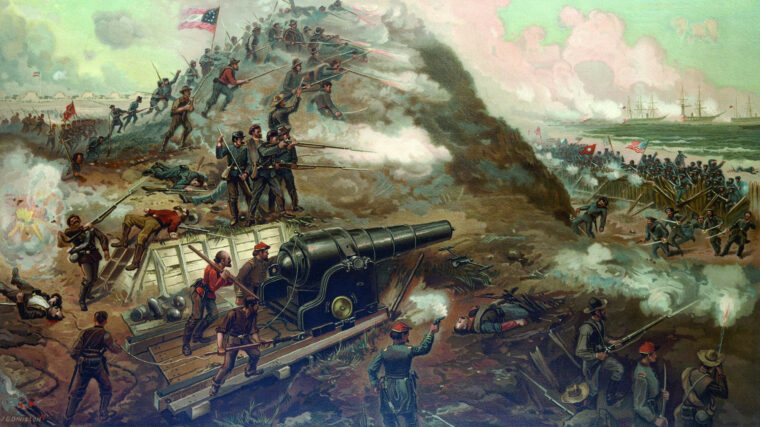
Confederacy
Thomas O. Selfridge: A Naval Hero of the Civil War
By James M. PowlesMarch 8, 1862, dawned sunny and mild at Hampton Roads, Virginia. To the men of the Union blockading squadron, the day seemed like any other. Read more

Confederacy
March 8, 1862, dawned sunny and mild at Hampton Roads, Virginia. To the men of the Union blockading squadron, the day seemed like any other. Read more
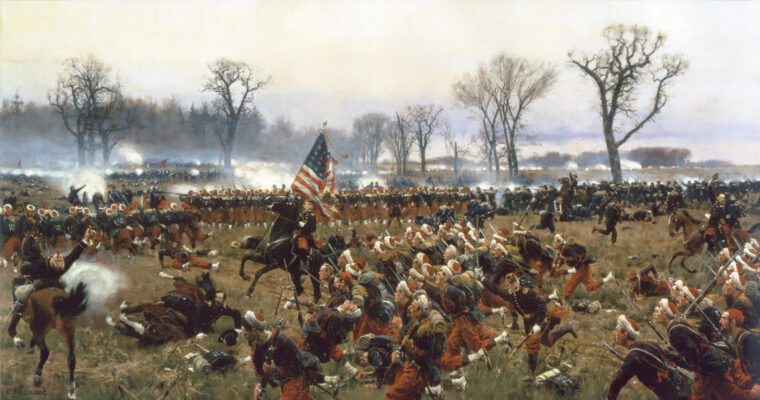
Confederacy
Word spread like wildfire through the camps of the Army of the Potomac during the second week of November 1862: “Little Mac” was out, “Old Burn” was in. Read more
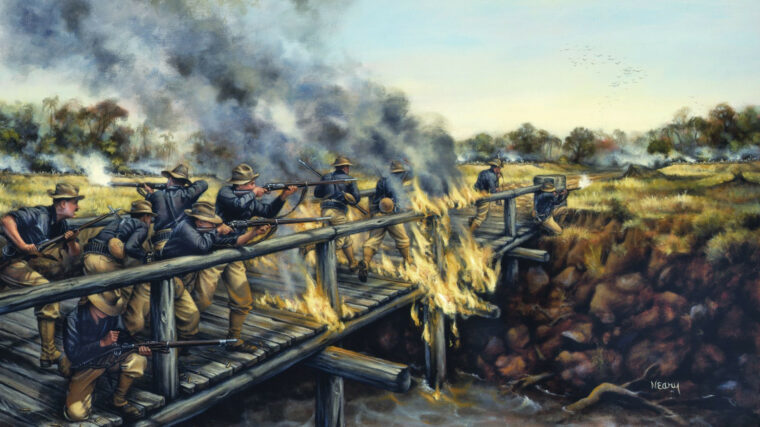
Confederacy
On August 3, 1864, near Atlanta, Georgia, Captain Henry Lawton of Indiana led a group of Union skirmishers in a charge against Confederate rifle pits. Read more
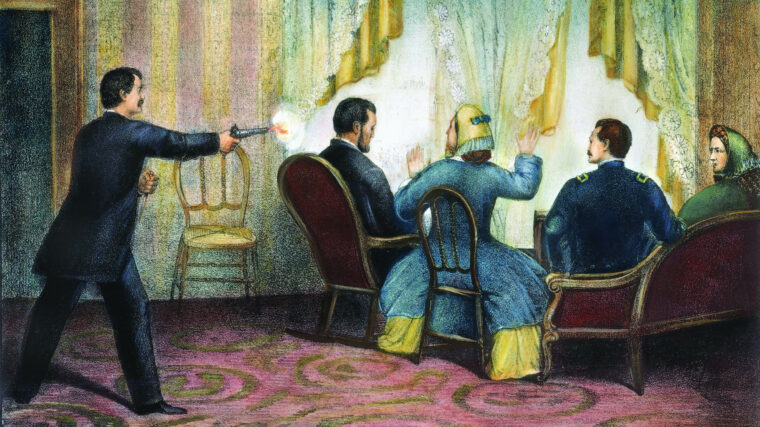
Confederacy
In the late hours of April 14, 1865, Secretary of War Edwin Stanton sat at a small table in the Petersen House across the street from Ford’s Theater in Washington, D.C. Read more
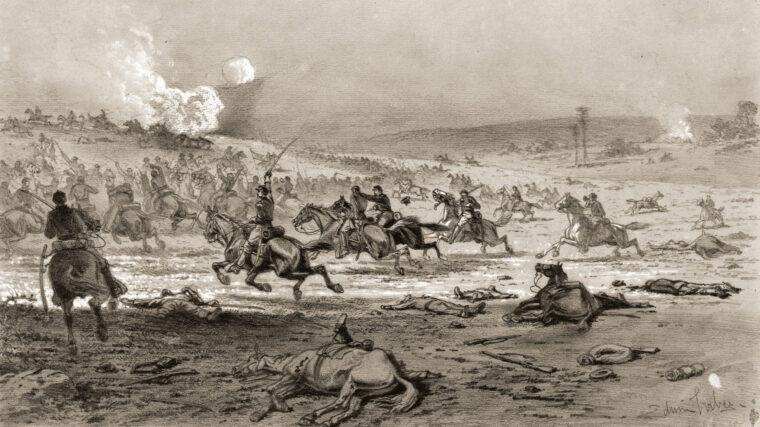
Confederacy
“We have been badly used up,” a sergeant in the 5th New York Volunteer Cavalry Regiment complained in a letter to his wife on May 8, 1864, four days before J.E.B. Read more
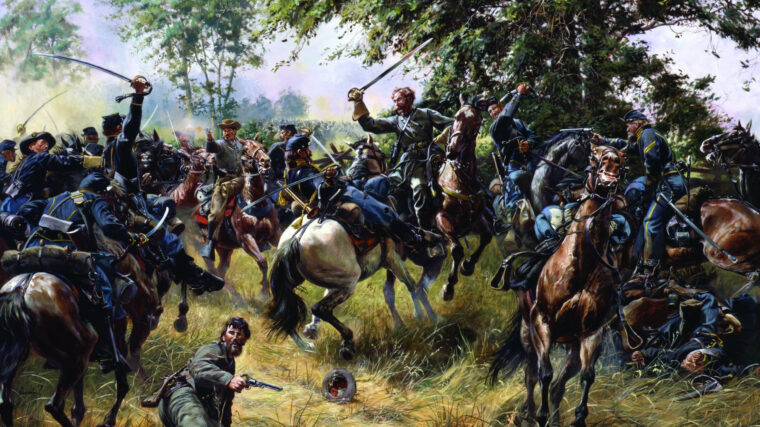
Confederacy
An angry gloom hung like dust over the 6,000 Confederate cavalrymen trooping up the York Turnpike in the early dawn of July 3, 1863. Read more
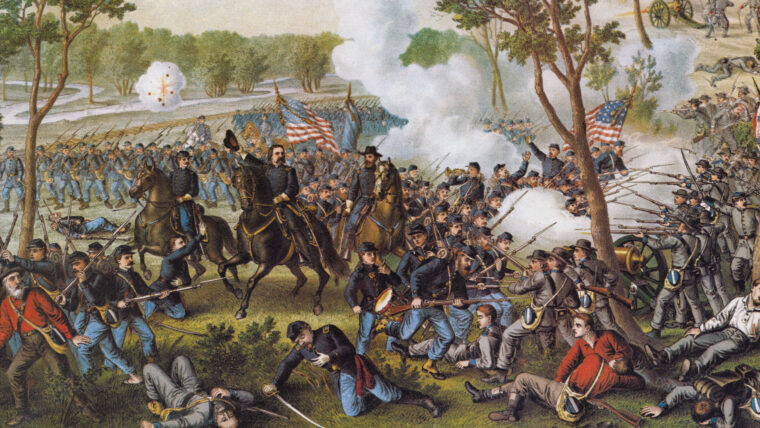
Confederacy
During the Civil War, the strategic importance of Vicksburg, Mississippi, was readily apparent to both the Union and the Confederacy. Read more
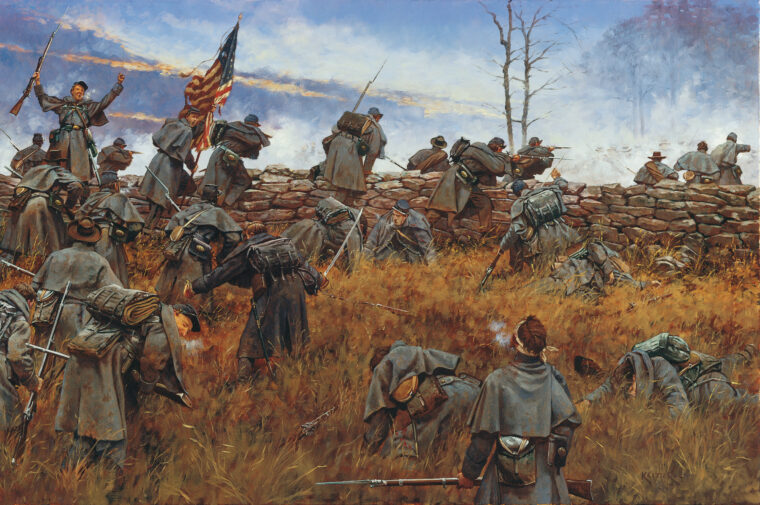
Confederacy
Sunday morning, March 23, 1862, was sunny and warm in Virginia’s Shenandoah Valley. Confederate general Thomas J. “Stonewall” Jackson, a devout Christian, did not like to fight on the Lord’s Day. Read more
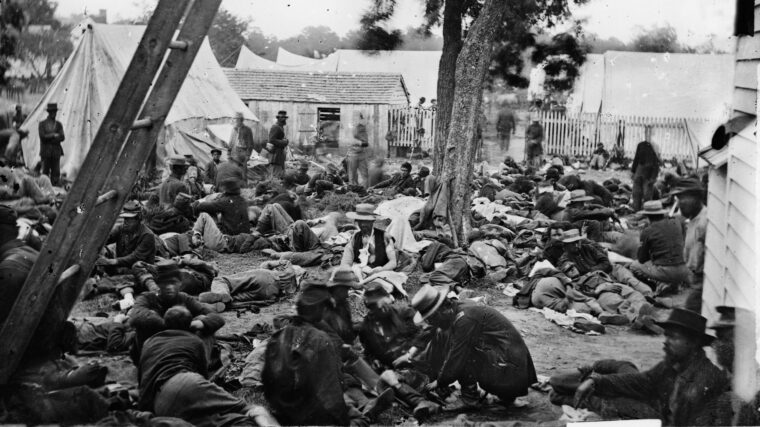
Confederacy
Safe behind its ocean barriers, the United States paid scant attention to the wars that raged abroad during the early 19th century, taking little notice of the lessons that might have been learned from the European experience with mass killing. Read more
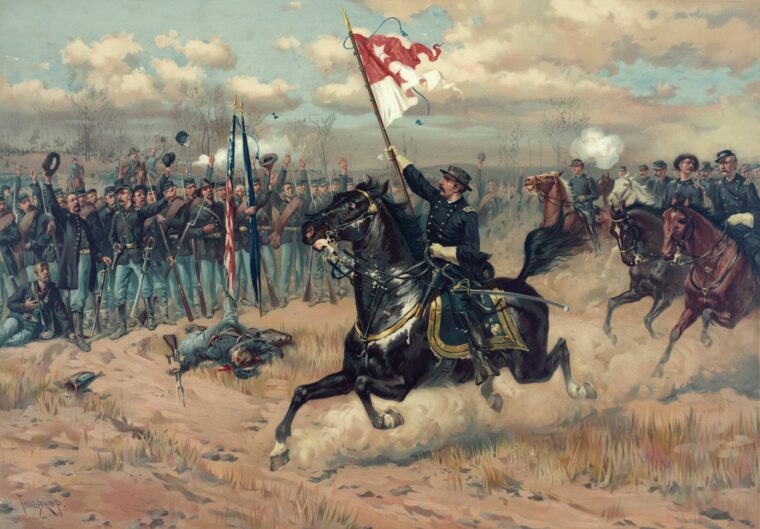
Confederacy
Phil Sheridan had a bad feeling. The bantam-sized Union general always trusted his instincts, and now, in mid-October 1864, those instincts were telling him that trouble was brewing back at the front, where his Army of the Shenandoah was encamped near Cedar Creek, Virginia, resting and relaxing after a busy few weeks burning civilian farms and slaughtering thousands of head of livestock from Staunton north to Woodstock. Read more
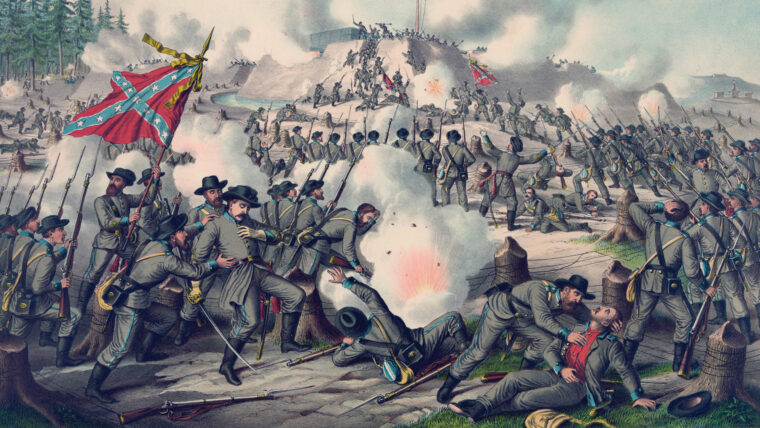
Confederacy
After the crushing Union defeat at the Battle of Fredericksburg on December 13, 1862, President Abraham Lincoln relieved Maj. Read more
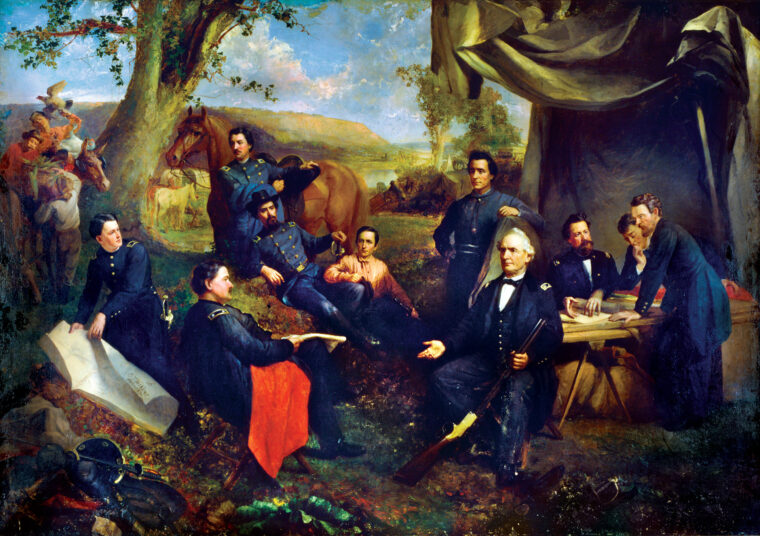
Confederacy
When the Civil War erupted, so many of Lisbon, Ohio-born Robert McCook’s large extended family joined the Union Army that the clan became known as the “Fighting McCooks.” Read more
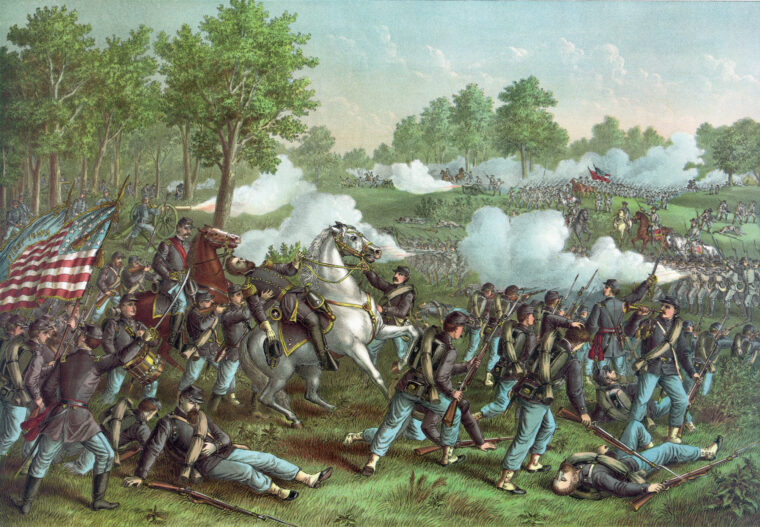
Confederacy
At the beginning of 1861, Missouri was in turmoil. A slave state since its inception in 1820, Missouri had grown increasingly tied to urban industry. Read more
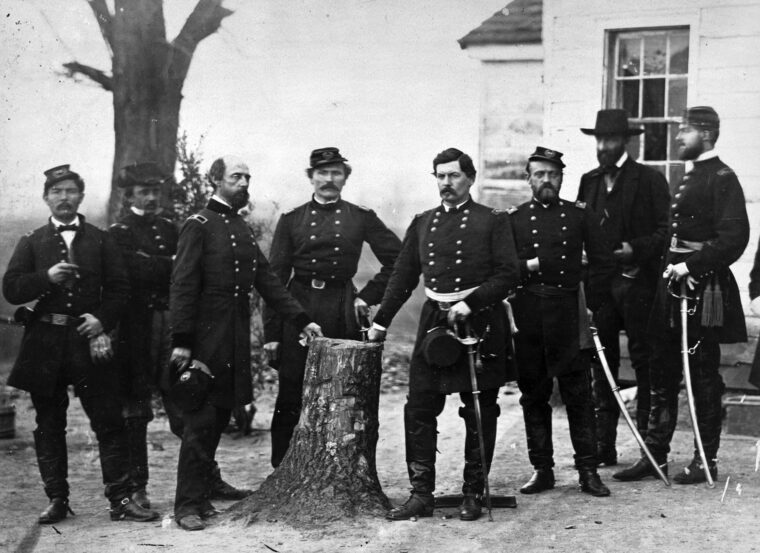
Confederacy
After an almost uninterrupted, four-month-long string of Union successes beginning in early 1862, followed by the advance of a 100,000-man enemy army to the eastern outskirts of its capital at Richmond, Virginia, the Confederacy suddenly found itself in a life-or-death struggle for its very survival. Read more
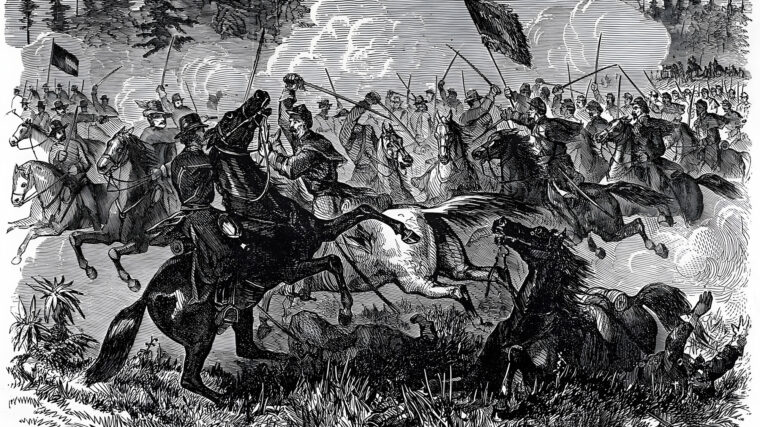
Confederacy
Napoleon Alexandre Duffie was born on May 1, 1833, in Paris, France. His father, Jean August Duffie, was a prosperous sugar refiner and mayor of the village of La Ferte-sous-Jouarre. Read more
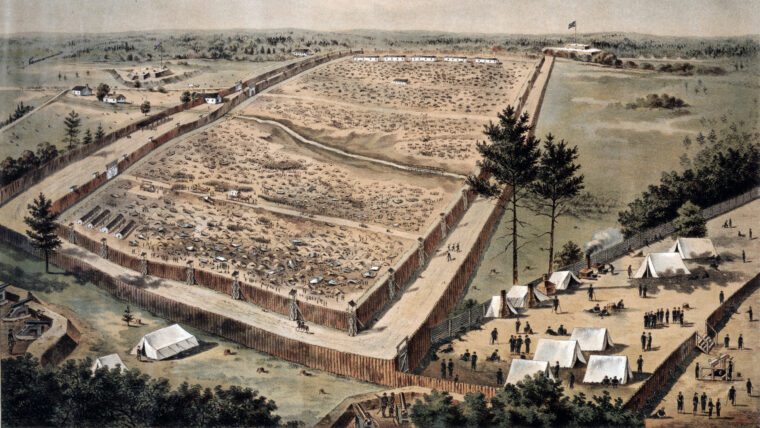
Confederacy
The June 19, 1861, editorial in the Charleston Mercury newspaper warned: “War is bloody reality, not butterfly sporting. Read more
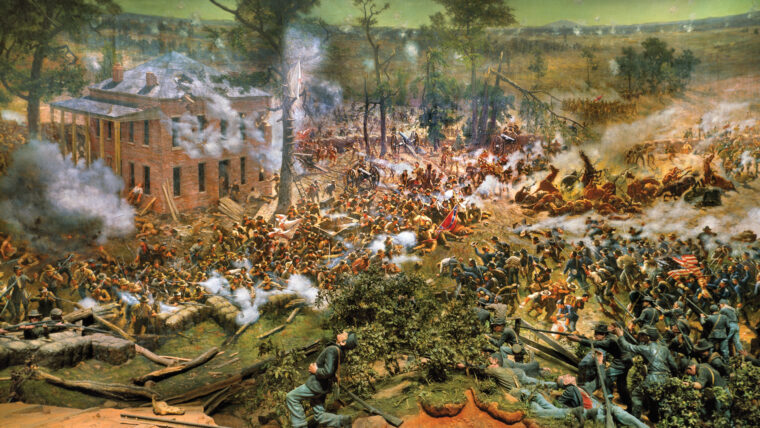
Confederacy
The guide shook uncontrollably when the gray-clad general pointed his pistol at him in the backwoods of central Georgia on the evening of July 21, 1864. Read more
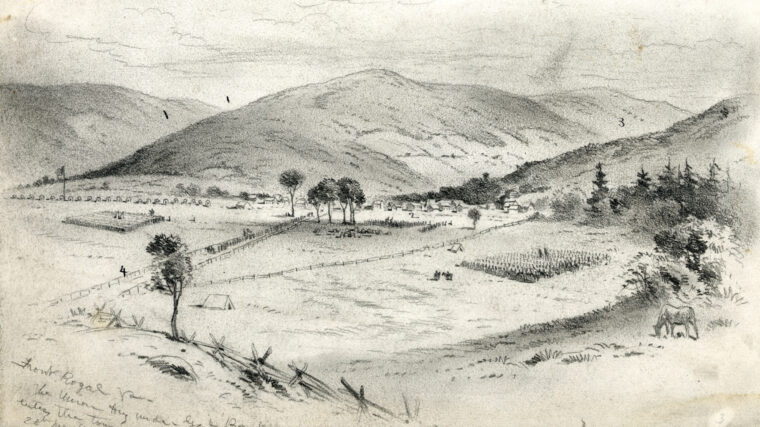
Confederacy
Word spread like wildfire through Martinsburg in northeastern Virginia that the Yankees were on the move. On July 2, 1861 Maj. Read more
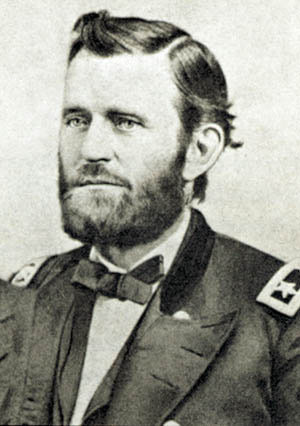
Confederacy
When the sun set on the Confederacy, the stars began to rise and shine, none more brightly for Northerners than that of Abraham Lincoln, and for Southerners than those of Robert E. Read more
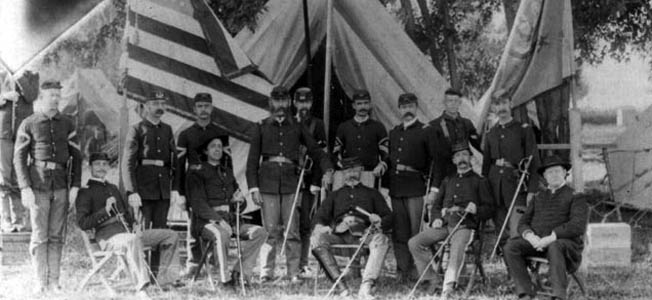
Confederacy
When the American Civil War erupted in 1861 Iowa soldiers were equipped with old converted smoothbore flintlock muskets. Read more